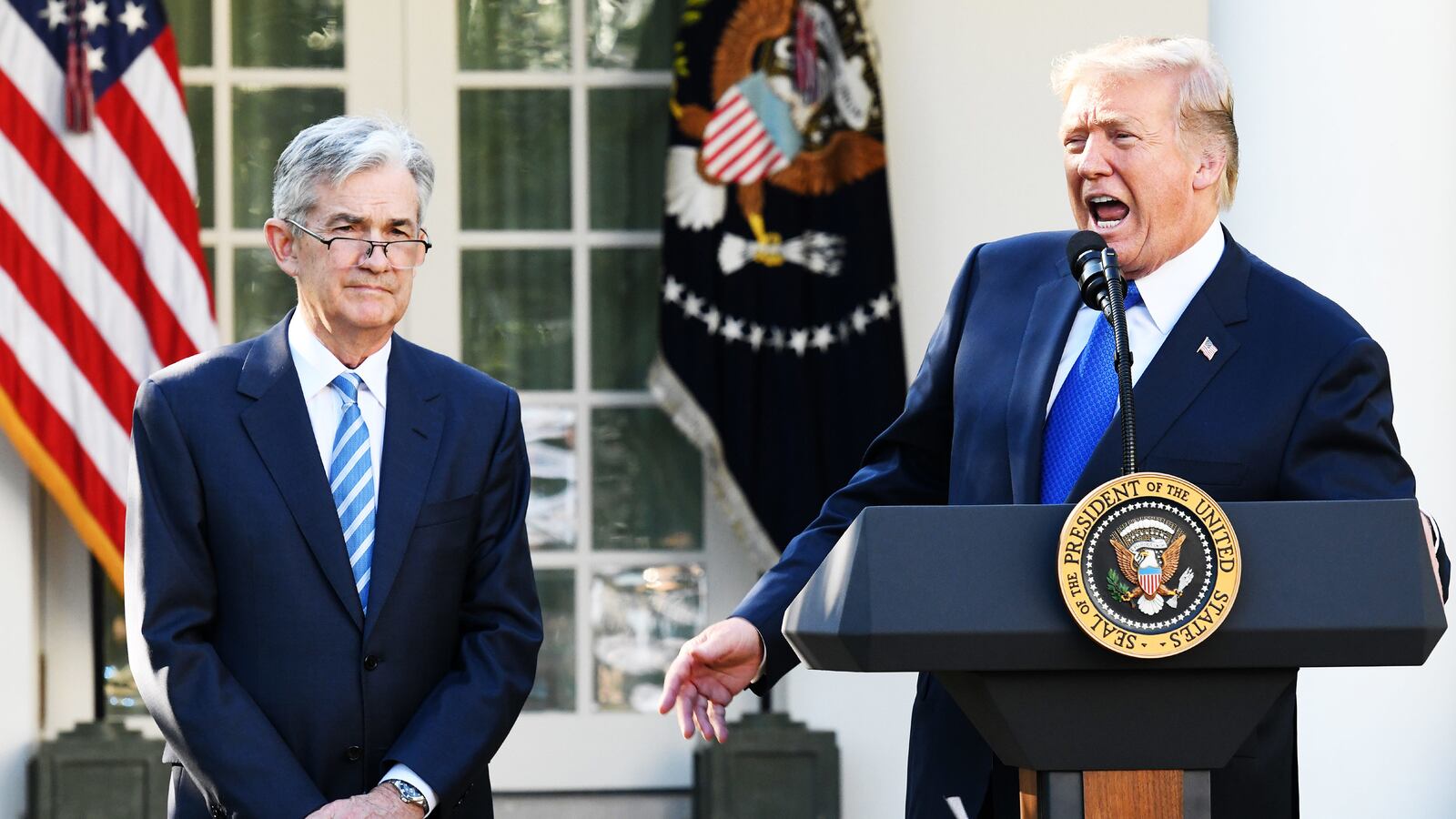We tend to forget this as we watch the daily madness of the Trump presidency, but a president’s principal role is to run the executive branch. Above all, that consists of appointing personnel to thousands of roles across the administration and laying out a vision that inspires and drives that army of appointees towards common ends.
Thus, when Donald Trump assails Federal Reserve Chairman Jerome Powell (his own pick) as incompetent and/or malevolent in executing his critical role in helping manage the United States economy, he is unquestionably attacking his own judgment and fitness for office.
Indeed, each and every collapse in relations between Trump and his senior appointees reflects a consequential admission of failure in selection or management by Trump. So while some pundits insist on characterizing Trump’s erratic behavior as genius strategy, Trump’s opponents would be well-served to seize on ample opportunities to highlight how Trump is seemingly confessing he cannot do the job to which he was elected.
They could, for example, talk about the fact that 75 percent of the 65 positions in the Executive Office of the President have experienced some turnover. Or that 33 percent of those have had more than one replacement (some have had as many as four). They could also point out that, in two and a half years, more people have departed Trump’s Cabinet than left the cabinets of any of his five immediate predecessors over the course of their full first terms.
Try as he might, Trump cannot credibly foist the blame for such remarkable turnover on anyone else. And these positions matter not because of the aesthetics of elites but because, from the air we breathe to the economy within which we seek work, Trump’s appointees hold jobs of enormous consequence to the real lives of all who live in America.
Thus the overwhelming turmoil amongst his senior appointees is an admission of failure by Trump that would be weighty to voters... if any leading figures or institutions cared enough to make it a focus of scrutiny.
How might candidates tell that story? Let’s return to Trump’s attacks on Powell to illustrate. In order to be successful, a president must identify and appoint excellent personnel. At first, according to Trump at least, Powell fit the description. During his announcement, Trump described Powell as “strong... committed... and smart.”
That’s a far cry, however, from Trump’s evaluation earlier this week, or indeed his opinion only a matter of months following Powell’s nomination. It did not take long before Trump had seemingly forgotten his kind words and taken to treating Powell as a punching bag.
Is Powell really unfit for his job? Did Trump make a mistake in nominating him and thus fail at a foundational part of his job (i.e. picking good personnel)? Or is he simply using Powell as the fall guy for his own mistakes? Well, Powell is clearly not outrageously unqualified and sadistically destructive as some other Trump appointees, like Ben Carson, Scott Pruitt, or Betsy DeVos. For 2020 candidates, however, the answer doesn’t matter. Either one paints a damning picture of this president’s inability to lead his administration.
Trump’s failures, however, do not end there, and nor should candidates’ critiques. Picking good personnel is only the first step to a successful presidency. The second, as previously mentioned, is laying out a vision that gives appointees a uniting purpose.
Needless to say, with Trump, there is no such unifying vision. His goals change from day to day, making it impossible for appointees to steadily carry them out or even to know if they will still have a job the following morning. While Trump’s managerial incompetence may actually be a blessing, it having foiled some of this administration’s most dangerous plans, one would hope that a future president would be more effective.
The 2020 hopefuls should not leave this question—one that gets at the heart of what kind of president they would be—open to speculation. Each should instead lay out a clear vision for how they would mobilize their executive branch to serve those whose votes they are trying to win. That means telling voters how their administration will pick personnel, what criteria they will apply, and how they will inspire those chosen to fight effectively and creatively to make the executive branch work better for regular people.
Next week’s CNN Climate Town Hall is the perfect forum in which to get started. Fighting climate change will be the future president’s most urgent task, and his or her success will rest, above all, on the ability to effectively staff, manage, and lead the executive branch.
Appointing, say, Jay Inslee as the EPA’s administrator will not be enough; the new president must choose officials who are ready and willing to use the tools at their disposal to fight climate change for climate-policy-relevant roles across the administration, from the Office of Management and Budget and the Department of Labor to the Office of Information and Regulatory Affairs and the Department of Transportation.
To install these officials is not, however, enough; the future president will also need to lead this vast force of administrators and regulators. This is best accomplished not by undertaking the Sisyphean task of managing each appointee, but by articulating a governing ideology that establishes the values by which they will be expected to govern.
A future president could, for example, make clear that all work to combat climate change must center equity, thereby foreclosing policies that exacerbate existing inequalities or provide openings for corporations to further entrench their power over our economic and political systems.
Although Trump’s incompetence is particularly acute, he is not the only president to have been stymied by a lack of managerial skills or an absence of vision. For this reason, it is particularly important that presidential candidates seize on all opportunities—and under Trump there are many—to plant firmly in voters’ heads the idea of Trump’s glaring incompetence and clearly articulate how they would succeed where Trump has failed.








